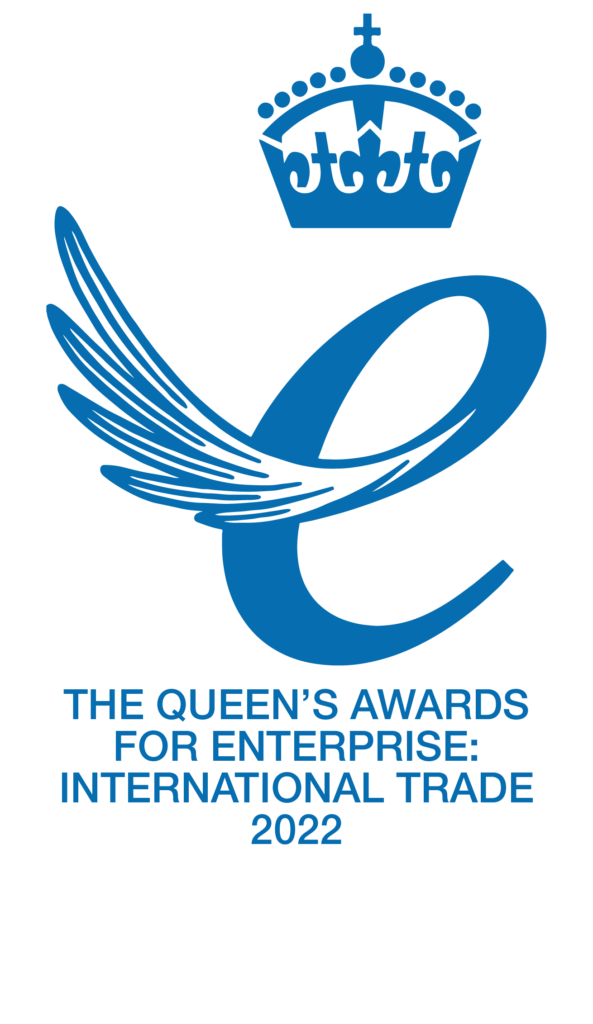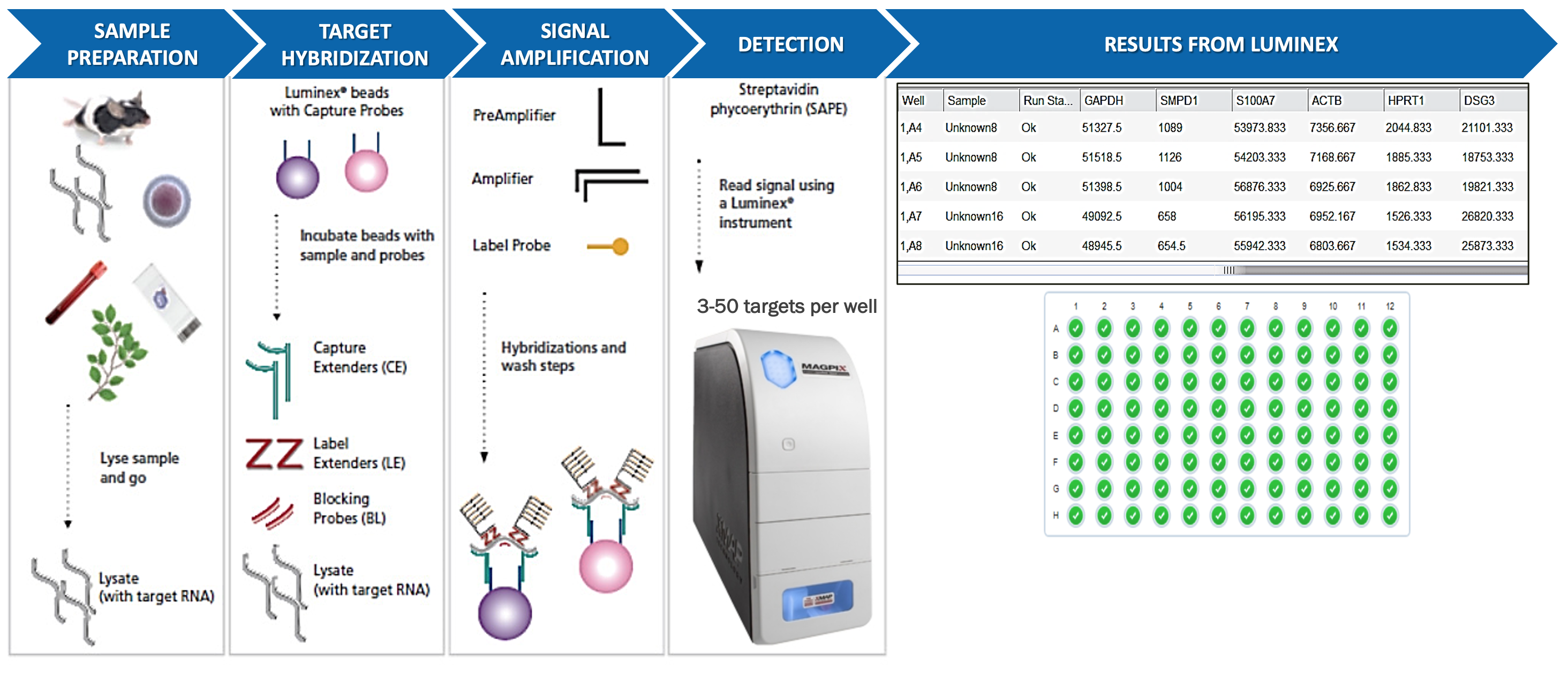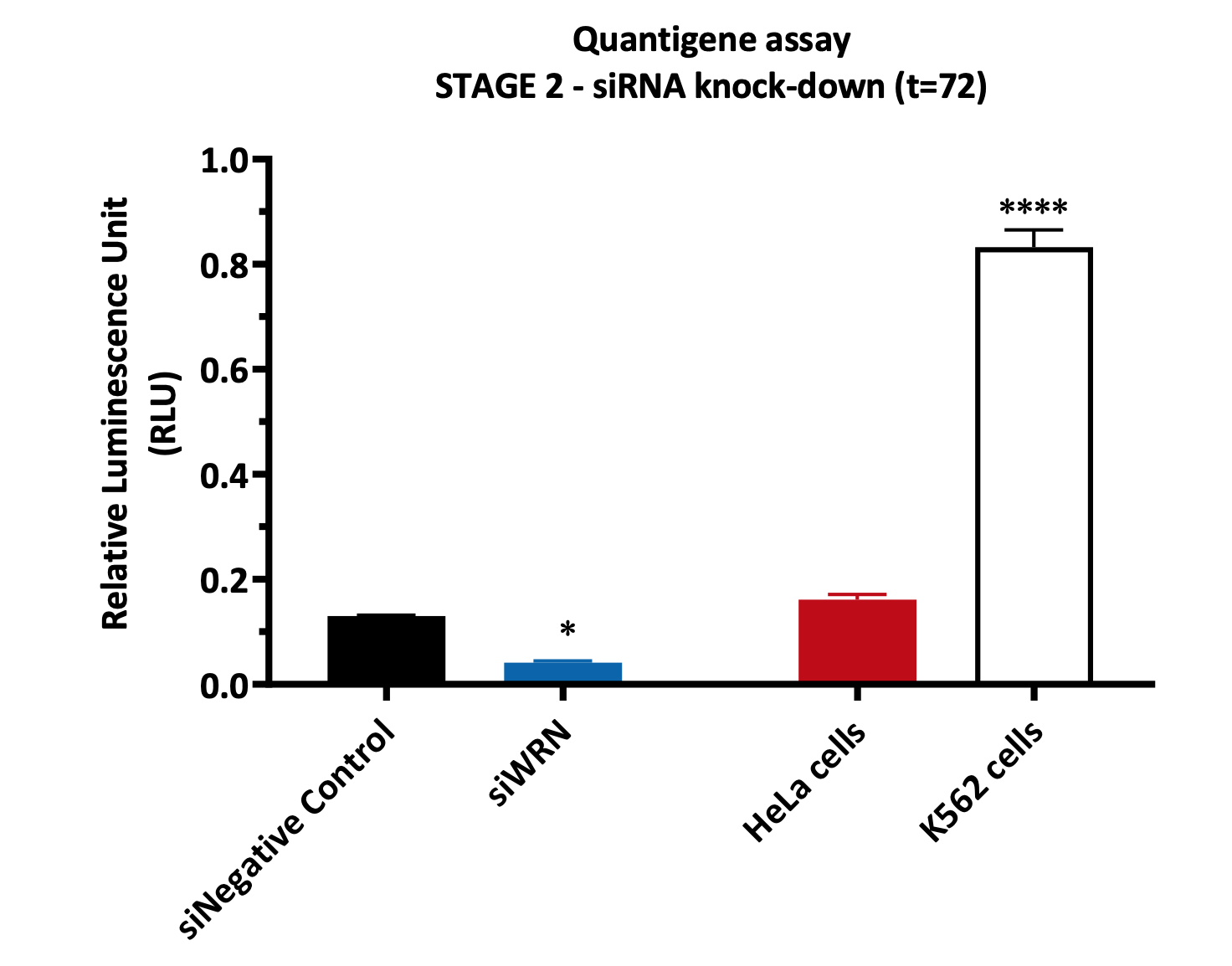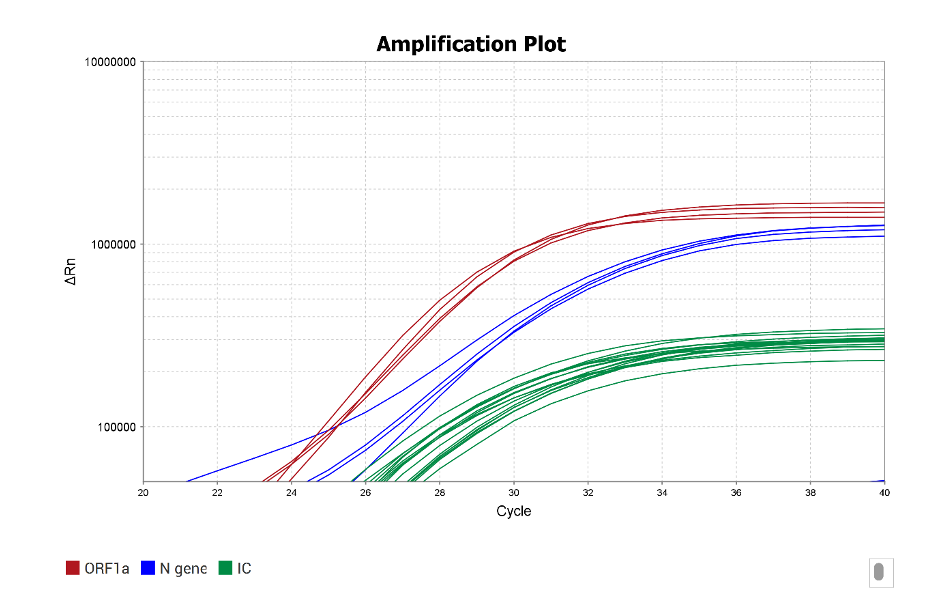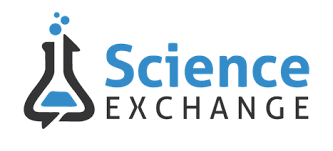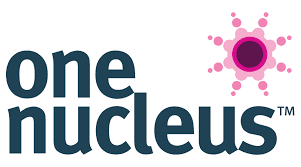Molecular Assays
Molecular assays explore the changes in a cell/tissue at the gene level using sophisticated techniques. Our specialist scientists have extensive expertise in creating and running molecular assays for our clients.
To find out how Cellomatics can help with your molecular assays, please contact us or request a consultation.
Gene Expression
Gene expression analysis is performed to identify the way genes are transcribed to synthesise functional gene products — functional RNA species or protein products. The study of gene regulation provides insights into normal cellular processes, such as differentiation, and abnormal or pathological processes.
Quantigene
Multi-Plex Gene Assay – Unique Benefits
- Sample types – Whole blood, FFPE, cells, serum, tissue lysates, no RNA purification required
- Specific Probes – Each gene is specifically targeted by 6 different probes designed along the target
- True amplification – The assay is based on branched DNA technology (sequential nucleic acid)
- High precision – Coefficient of variation (CV) of less than 20% for entire process (sample isolation to results)
- Multiplexing of targets – Up to 50 targets per well, housekeeping included
- Multiple target species – Large inventory of validated genes for various species
Multi-Plex assay (xTAG)
Multi-plex Gene assay- Tissue
MSingle-Plex Gene Assay – Unique Benefits
- Sample types – Whole blood, FFPE, cells, serum, tissue lysates, no RNA purification required
- True amplification – The assay is based on branched DNA technology (sequential nucleic acid hybridization)
- Easy workflow – Minimum sample preparation and ELISA like workflow
- High precision – Coefficient of variation (CV) of less than 10% for entire process (sample isolation to results)
Single-Plex assay
Single-Plex Gene assay- In vitro samples
HeLa cells were transfected with siNegative Control and siWRN. The WRN gene expression was then assayed 72 hours later to confirm siRNA-mediated knock-down. Positive control: K562 cells; HeLa cells = un-transfected cells. ANOVA one-way confirmed significant difference in WRN expression between siNegative Control and siWRN (*p<0.05); and K562 (****p<0.0001) [n=3 ± SEM].

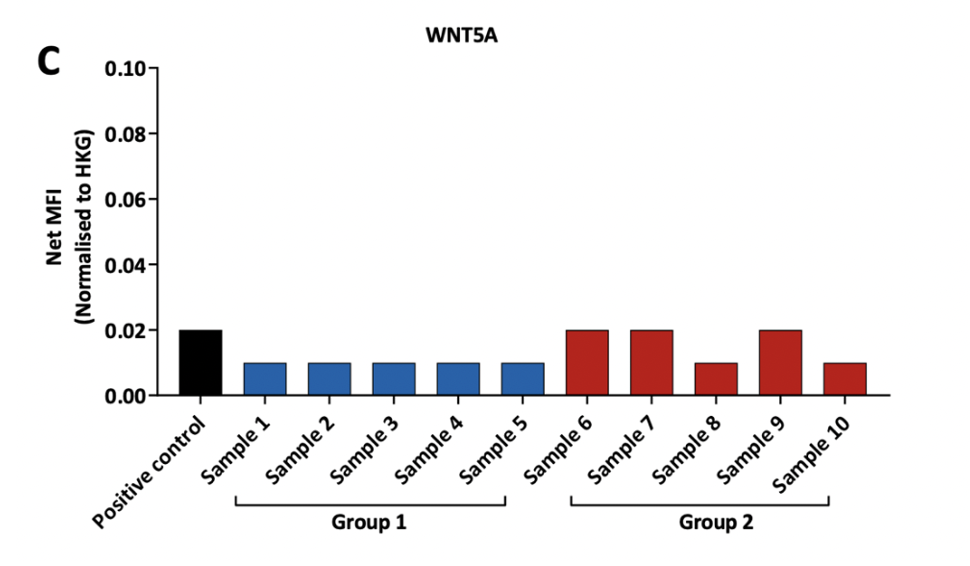
Tissue sections (intestine) from 10 mice were lysed and genes of interest were analysed using Quantigene (QGP) multiplex assay. The expression of these three genes of interest were normalised to three house keeping genes (HPRT1, GAPDH and Beta-Actin).
[MFI – Median fluorescent intensity]
qRT-PCR (quantitative Real-time PCR)
- Gold standard method to quantify gene expression, genotyping and melting curves
- Up to 4-plex gene analysis in state-of-the-art equipment (QuantStudio™ 3)
- Applicable to a wide range of biological samples, including very low starting material
- Supports fast reactions (<40 mins) in a high-throughput manner (96-well plate format)
- High specificity, sensitivity and reproducibility, particularly with predesigned TaqMan® assays
- Perfectly streamlined with commercially available RNA extraction and cDNA synthesis kits
Amplification plot of COVID19 PCR detection kit using 3-plex qRT-PCR reaction in QuantStudio3. Amplification of target sequences ORF1ab and N gene is detected through the FAM and ROX channels, respectively, whereas the internal control (IC) is quantified in the VIC channel.
Request a consultation with Cellomatics Biosciences today
Our experienced team of in vitro laboratory scientists will work with you to understand your molecular assay requirements and provide a bespoke project plan with a professional, flexible service and a fast turnaround time.
To request a consultation where we can discuss your exact requirements, please contact Cellomatics Biosciences.


